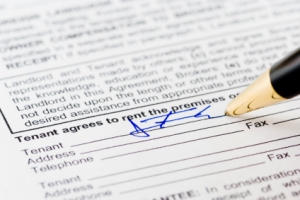By Link LeGrand, CCIM Contributing Columnist
Financial due diligence is the process of verifying all statements of fact (or “finding where the bodies are buried”) for a property you are considering purchasing. Proper due diligence is not a simple matter and normally takes weeks or sometimes months to complete.
One of the most crucial aspects of due diligence is determining the financial health of the property. This indicates whether the building is currently showing a profit, and if not, what actions you can take to make it profitable.
Income and expense statements
Statements of income and expenses are by far the most important part of your financial due diligence. These statements show what the seller collected in income from the tenants as well as what was spent to operate the property. At the least, you should obtain annual income and expense statements for the past five years.
Rent rolls
A rent roll is a list of all the units/tenants in a property and how much each is paying in monthly rent. It shows each tenant’s name and unit, the price per square foot and the total amount of rent paid. It also shows each tenant’s move-in date, lease terms, expiration date and whether the tenant has made a security deposit and, if so, how much.
Once you obtain this information, make sure the rent amounts stated on the reports match those shown on the leases, and compare all this information with the income and expense statements you received.
Tax returns
These may be harder to obtain as most sellers do not wish to disclose their tax returns to strangers. However, this information is essential in determining if the income and expenses shown on the tax return match those on the reports you were given. If they don’t, then either the seller has been misstating the income or some other mistake has been made.
Lease agreements
You should have an attorney review all the lease agreements on the property to determine the tenants’ rights as well as your right to either terminate leases or raise rents. You should also use an estoppel letter to verify the leases. This is a request-for-information letter that you would send to tenants to ask them for information on their leases. It will help you determine whether the document you were given is true and accurate and represents all the agreements between the seller and tenants.
Utility bills
This information should be listed on the expense reports, but you should compare it with the actual utility company bill and confirm the figures. This includes costs for electricity, gas, water, sewer, trash removal, telephone, cable and Internet services.
Property tax bills
Again, this information should be listed on the expense reports but you still should verify it with the taxing authority.
Financial due diligence is critical in determining whether you are buying a property with a positive cash flow or one that is going to cost you money every month. It’s well worth the time and effort.
Link LeGrand, CCIM is VP/Director at KW Commercial SA, Brokerage, Leasing and Development in San Antonio, Texas. Website: www.kwcommercialsa.com Email: Link@KWCommercialSA.com Tel: (210) 789-5465
Discover more from Helping NYC & Long Island Commercial Tenants, Owners, and Developers
Subscribe to get the latest posts sent to your email.




